#creativity blog
Text
To view the full video, check out my YouTube channel here.
2 notes
·
View notes
Text
"perfection is the death of art"
new blog-post out now!
0 notes
Text
Things That May Be Causing Your Writer's Block- and How to Beat Them
I don't like the term 'Writer's Block' - not because it isn't real, but because the term is so vague that it's useless. Hundreds of issues all get lumped together under this one umbrella, making writer's block seem like this all-powerful boogeyman that's impossible to beat. Worse yet, it leaves people giving and receiving advice that is completely ineffective because people often don't realize they're talking about entirely different issues.
In my experience, the key to beating writer's block is figuring out what the block even is, so I put together a list of Actual Reasons why you may be struggling to write:
(note that any case of writer's block is usually a mix of two or more)
Perfectionism (most common)
What it looks like:
You write one sentence and spend the next hour googling "synonyms for ___"
Write. Erase. Write. Rewrite. Erase.
Should I even start writing this scene when I haven't figured out this one specific detail yet?
I hate everything I write
Cringing while writing
My first draft must be perfect, or else I'm a terrible writer
Things that can help:
Give yourself permission to suck
Keep in mind that nothing you write is going to be perfect, especially your first draft
Think of writing your first/early drafts not as writing, but sketching out a loose foundation to build upon later
People write multiple drafts for a reason: write now, edit later
Stop googling synonyms and save that for editing
Write with a pen to reduce temptation to erase
Embrace leaving blank spaces in your writing when you can't think of the right word, name, or detail
It's okay if your writing sucks. We all suck at some point. Embrace the growth mindset, and focus on getting words on a page
Lack of inspiration (easiest to fix)
What it looks like:
Head empty, no ideas
What do I even write about???
I don't have a plot, I just have an image
Want to write but no story to write
Things that can help:
Google writing prompts
If writing prompts aren't your thing, instead try thinking about what kind of tropes/genres/story elements you would like to try out
Instead of thinking about the story you would like to write, think about the story you would like to read, and write that
It's okay if you don't have a fully fleshed out story idea. Even if it's just an image or a line of dialogue, it's okay to write that. A story may or may not come out of it, but at least you got the creative juices flowing
Stop writing. Step away from your desk and let yourself naturally get inspired. Go for a walk, read a book, travel, play video games, research history, etc. Don't force ideas, but do open up your mind to them
If you're like me, world-building may come more naturally than plotting. Design the world first and let the story come later
Boredom/Understimulation (lost the flow)
What it looks like:
I know I should be writing but uugggghhhh I just can'tttttt
Writing words feels like pulling teeth
I started writing, but then I got bored/distracted
I enjoy the idea of writing, but the actual process makes me want to throw my laptop out the window
Things that can help:
Introduce stimulation: snacks, beverages, gum, music such as lo-fi, blankets, decorate your writing space, get a clickity-clackity keyboard, etc.
Add variety: write in a new location, try a new idea/different story for a day or so, switch up how you write (pen and paper vs. computer) or try voice recording or speech-to-text
Gamify writing: create an arbitrary challenge, such as trying to see how many words you can write in a set time and try to beat your high score
Find a writing buddy or join a writer's group
Give yourself a reward for every writing milestone, even if it's just writing a paragraph
Ask yourself whether this project you're working on is something you really want to be doing, and be honest with your answer
Intimidation/Procrastination (often related to perfectionism, but not always)
What it looks like:
I was feeling really motivated to write, but then I opened my laptop
I don't even know where to start
I love writing, but I can never seem to get started
I'll write tomorrow. I mean next week. Next month? Next month, I swear (doesn't write next month)
Can't find the time or energy
Unreasonable expectations (I should be able to write 10,000 words a day, right????)
Feeling discouraged and wondering why I'm even trying
Things that can help:
Follow the 2 min rule (or the 1 paragraph rule, which works better for me): whenever you sit down to write, tell yourself that you are only going to write for 2 minutes. If you feel like continuing once the 2 mins are up, go for it! Otherwise, stop. Force yourself to start but DO NOT force yourself to continue unless you feel like it. The more often you do this, the easier it will be to get started
Make getting started as easy as possible (i.e. minimize barriers: if getting up to get a notebook is stopping you from getting started, then write in the notes app of your phone)
Commit to a routine that will work for you. Baby steps are important here. Go with something that feels reasonable: every day, every other day, once a week, twice a week, and use cues to help you remember to start. If you chose a set time to write, just make sure that it's a time that feels natural to you- i.e. don't force yourself to writing at 9am every morning if you're not a morning person
Find a friend or a writing buddy you can trust and talk it out or share a piece of work you're proud of. Sometimes we just get a bit bogged down by criticism- either internal or external- and need a few words of encouragement
The Problem's Not You, It's Your Story (or Outline (or Process))
What it looks like:
I have no problems writing other scenes, it's just this scene
I started writing, but now I have no idea where I'm going
I don't think I'm doing this right
What's an outline?
Drowning in documents
This. Doesn't. Make. Sense. How do I get from this plot point to this one?!?!?! (this ColeyDoesThings quote lives in my head rent free cause BOY have I been there)
Things That Can Help:
Go back to the drawing board. Really try to get at the root of why a scene or story isn't working
A part of growing as a writer is learning when to kill your darlings. Sometimes you're trying to force an idea or scene that just doesn't work and you need to let it go
If you don't have an outline, write one
If you have an outline and it isn't working, rewrite it, or look up different ways to structure it
You may be trying to write as a pantser when you're really a plotter or vice versa. Experiment with different writing processes and see what feels most natural
Study story structures, starting with the three act structure. Even if you don't use them, you should know them
Check out Ellen Brock on YouTube. She's a professional novel editor who has a lot of advice on writing strategies for different types of writers
Also check out Savage Books on YouTube (another professional story editor) for advice on story structure and dialogue. Seriously, I cannot recommend this guy enough
Executive Dysfunction, Usually From ADHD/Autism
What it looks like:
Everything in boredom/understimulation
Everything in intimidation/procrastination
You have been diagnosed with and/or have symptoms of ADHD/Autism
Things that can help:
If you haven't already, seek a diagnosis or professional treatment
Hire an ADHD coach or other specialist that can help you work with your brain (I use Shimmer; feel free to DM me for a referral)
Seek out neurodiverse communities for advice and support
Try body doubling! There's lot's of free online body doubling websites out there for you to try. If social anxiety is a barrier, start out with writing streams such as katecavanaughwrites on Twitch
Be aware of any sensory barriers that may be getting in the way of you writing (such as an uncomfortable desk chair, harsh lighting, bad sounds)
And Lastly, Burnout, Depression, or Other Mental Illness
What it looks like:
You have symptoms of burnout or depression
Struggling with all things, not just writing
It's more than a lack of inspiration- the spark is just dead
Things that can help:
Forget writing for now. Focus on healing first.
Seek professional help
If you feel like it, use writing as a way to explore your feelings. It can take the form of journaling, poetry, an abstract reflection of your thoughts, narrative essays, or exploring what you're feeling through your fictional characters. The last two helped me rediscover my love of writing after I thought years of depression had killed it for good. Just don't force yourself to do so, and stop if it takes you to a darker place instead of feeling cathartic
#writing#creative writing#writer problems#writing advice#writing community#writing a book#writing problems#novel writing#on writing#writing tips#writing help#writers on tumblr#writers block#female writers#writers of tumblr#writers blog#adhd writer
18K notes
·
View notes
Text
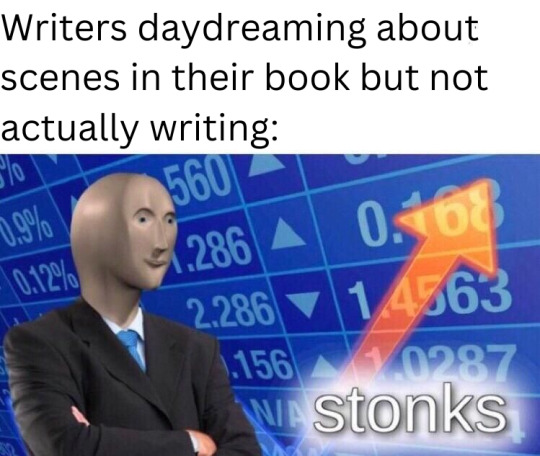
#it me#hmmm daydreaming go brrr#writing#fiction#creative writing#author#writerblr#writing community#my writing#writer#writers of tumblr#indie author#writing memes#novel writing#am writing#fantasy writing#book writing#fiction writing#story writing#writing blog#writing fiction#writing inspiration#writing meme
10K notes
·
View notes
Text
Some of my writer’s block cures:
Handwrite. (If you already are, write in a different coloured pen.)
Write outside or at a different location.
Read.
Look up some writing prompts.
Take a break. Do something different. Comeback to it later.
Write something else. (A different WIP, a poem, a quick short story, etc.)
Find inspiring writing music playlists on YouTube. (Themed music, POV playlists, ambient music, etc.)
Do some character or story prompts/questions to get a better idea of who or what you’re writing.
Word sprints. Set a timer and write as much as you can. Not a lot of time to overthink things.
Set your own goals and deadlines.
Write another scene from your WIP. (You don’t have to write in order.) Write a scene you want to write, or the ending. (You can change it or scrap it if it doesn’t fit into your story later.)
Write a scene for your WIP that you will never post/add to your story. A prologue, a different P.O.V., how your characters would react in a situation that’s not in your story, a flashback, etc.
Write down a bunch of ideas. Things that could happen, thing that will never happen, good things, bad things.
Change the weather (in the story of course.)
Feel free to add your own.
#writeblr#writing help#writing tips#writing advice#books#writing#wattpad#stories#author#writing community#creative writing#writers on tumblr#writers block#writers blog#writblr#female writers#writerscorner#writing motivation#writers block cures#novel writing#writer things#writing encouragement#authors supporting authors#author blog
14K notes
·
View notes
Text
subtle ways to include foreshadowing
one character knowing something offhandedly that they shouldn't, isn't addressed until later
the crow rhyme
colours!! esp if like, blue is evil in your world and the mc's best friend is always noted to wear blue...betrayal?
write with the ending in mind
use patterns from tragic past events to warn of the future
keep the characters distracted! run it in the background until the grand reveal
WEATHER.
do some research into Chekhov's gun
mention something that the mc dismisses over and over
KEEP TRACK OF WHAT YOU PUT. don't leave things hanging.
unreliable characters giving information that turn out to be true
flowers and names with meanings
anything with meanings actually
metaphors. if one character describes another as "a real demon" and the other turns out to be the bad guy, you're kind of like...ohhh yeahhh
anyways add anything else in the tags
#foreshadowing#writing tips#lyralit#writing#writing prompts#writerblr#writing blog#prompt list#foreshadow#writers#writblr#writers block#writing ideas#creative writing
44K notes
·
View notes
Text
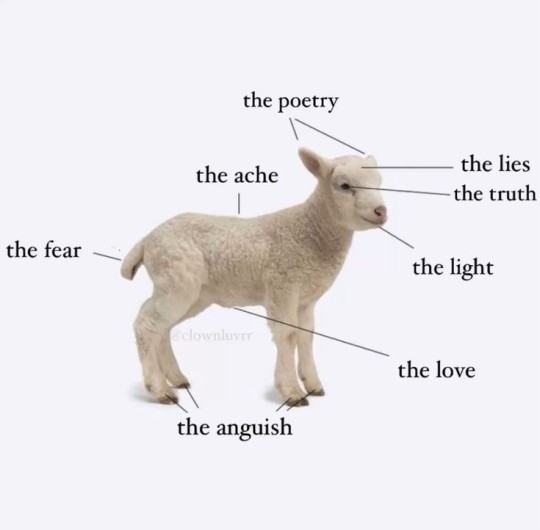
This is me btw
#beginner writer#literary fiction#poets corner#poetry blog#poems#story writing#writer#creative writing#author#writer problems#dark academia#poetic#prose#poet#poem#poetry#bookworm#book quotes#books#art#aesthetic#words#quotes#girlblogging#blog#artists on tumblr#writers block#writing#female hysteria#female poets
3K notes
·
View notes
Text
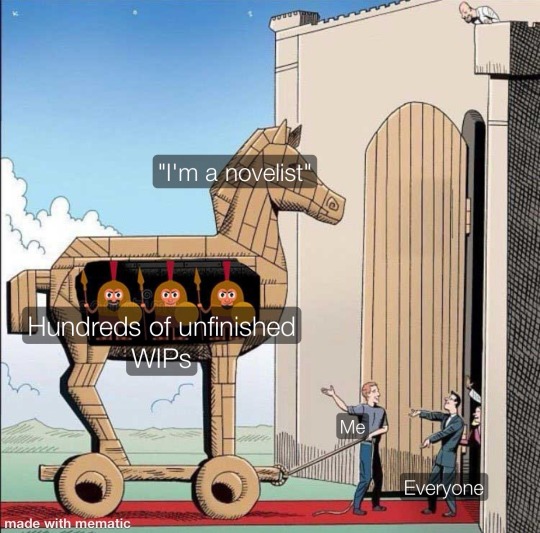
#imposter syndrome#writing memes#writing humor#lol memes#writing#writeblr#my writing#fantasy#fantasy author#romantasy#ya fantasy#writerscommunity#ya romance#novelist#writing blog#writers life#romance writing#writers#writer#writers of tumblr#writing community#creative writing#writing tropes#writers on tumblr#writblr#writer things#cat fayssoux#ya fantasy author#ya fiction#novel
4K notes
·
View notes
Text
Fanfuckingtastic writing advice!!
Beating yourself up about your writing DOES NOT HELP YOU WRITE! Cut that shit out, be nicer to yourself, take breaks, and remember it's a marathon not a sprint and also nobody likes running ¯\_(ツ)_/¯
#writeblr#writers on tumblr#writerscommunity#writing#writblr#writer things#writers#writerscorner#writerslife#book blog#original writing#creative writing#writers block#writing stuff#writing advice#writings
3K notes
·
View notes
Text
Some Quick Character Tips
Here are a handful of quick tips to help you write believable characters!
1. A character’s arc doesn’t need to grow linearly. Your protagonist doesn’t have to go from being weak to strong, shy to confident, or novice to professional in one straight line. It’s more realistic if they mess up their progress on the way and even decline a bit before reaching their goal.
2. Their past affects their present. Make their backstory matter by having their past events shape them into who they are. Growing up with strict parents might lead to a sneaky character, and a bad car accident might leave them fearful of driving.
3. Give reoccurring side characters something that makes them easily recognizable. This could be a scar, a unique hairstyle, an accent, or a location they’re always found at, etc.
4. Make sure their dialogue matches their personality. To make your characters more believable in conversation, give them speech patterns. Does the shy character mumble too low for anyone to ever hear, does the nervous one pace around and make everyone else on edge?
5. Make your characters unpredictable. Real people do unexpected things all the time, and this can make life more exciting. The strict, straight-A student who decides to drink at a party. The pristine princess who likes to visit the muddy farm animals. When character’s decide to do things spontaneously or in the heat of the moment, it can create amazing twists and turns.
6. Give even your minor character's a motive. This isn’t to say that all your characters need deep, intricate motives. However, every character should need or want something, and their actions should reflect that. What’s the motive behind a side character who follows your protagonist on their adventure? Perhaps they’ve always had dreams of leaving their small village or they want to protect your protagonist because of secret feelings.
Instagram: coffeebeanwriting
#writing tips and tricks#writing tips#writing advice#creative writing#writeblr#writing blog#how to write#writing help#writing fiction#writing prompts#fantasy writing#authortips#authoradvice#writingtips#writingmemes#writers blog#writingblog#authorsblog#howtowrite#writingtipsandtricks#writerscommunity#writers community#writinghelp#writingprompts#writertips#howtowriteascene#writingfiction#fictionwriting#fantasywriting#writing memes
23K notes
·
View notes
Text
me, after clearing my schedule to write:
uhhhh it was raining... and dark (and also night) and um... cold i guess?? anyway, something dramatic~ happened
me, stuck in traffic on my way to work:
Rain tumbled through midnight leaves, casting the forest in liquid moonlight. A low growl shook the horizon. Death had come.
#writeblr#writers of tumblr#writer problems#writing#writers#creative writing#writeblr community#jgmartin#am writing#tumblr writers#original writing#writer community#writers and poets#writerscommunity#writer things#writers on tumblr#writerslife#writing blog#poetrycommunity#writing community#writing advice
10K notes
·
View notes
Text
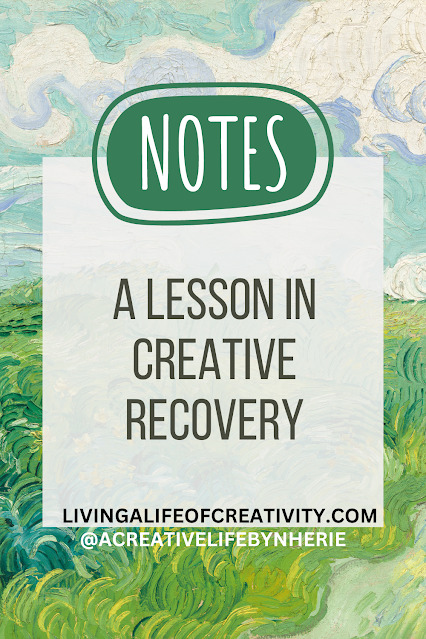
Are you pouring out more than you're in? I discovered that creative recovery is a pouring in journey. Yet, I was pouring out too generously before I was truly full. Click the link below to read 📚.
3 notes
·
View notes
Text
Writing Rage: How To Make Your Characters Seem Angry
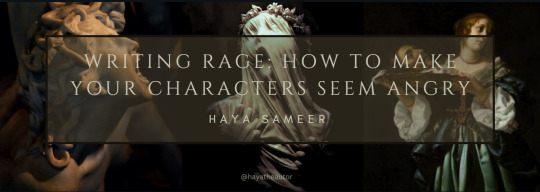
Anger is a powerful emotion that can add depth and intensity to your character's personality. If you're facing issues realistically expressing your characters' rage, here are some quick tips to help you get the ball rolling. Whether your character is seething with quiet rage or exploding in a fit of fury, these tips will help you convey their emotions vividly to your readers.
This is blog one in my writing different emotions series. Go check it out to explore more emotions!
Facial Expressions
Furrowed Brows: Describe the deep lines between their eyebrows, signaling frustration or intensity.
Tightened Jaw: Mention their clenched jaw, indicating suppressed anger or tension.
Narrowed Eyes: Highlight how their eyes narrow, showing suspicion, irritation, or anger.
Raised Upper Lip: Note the slight curl of the lip, suggesting disdain or contempt.
Flared Nostrils: Describe how their nostrils flare, indicating heightened emotions like anger or aggression.
Body Language and Gestures
Crossed Arms: Show their defensive stance, portraying resistance or defiance.
Pointing Finger: Describe them pointing accusatively, conveying aggression or assertion.
Fist Clenching: Mention their clenched fists, symbolizing anger or readiness for confrontation.
Hand Gestures: Detail specific hand movements like chopping motions, indicating frustration or emphasis.
Aggressive Posturing: Describe them leaning forward, invading personal space to intimidate or assert dominance.
Posture
Tense Shoulders: Highlight their raised or tense shoulders, indicating stress or readiness for conflict.
Upright Stance: Describe their rigid posture, showing control or a desire to appear strong.
Stiff Movements: Mention their jerky or abrupt movements, reflecting agitation or impatience.
Eye Contact
Intense Stares: Describe their intense or prolonged gaze, signaling confrontation or challenge.
Avoiding Eye Contact: Note how they avoid eye contact, suggesting discomfort or a desire to disengage.
Glaring: Mention how they glare at others, conveying hostility or disapproval.
Dialogue
Raised or strained tone with variations in pitch reflects heightened emotions.
Short, clipped sentences or abrupt pauses convey controlled anger.
Use of profanity or harsh language intensifies verbal expressions of anger.
Volume increase, from whispers to shouts, mirrors escalating anger levels.
Monotonous or sarcastic tone adds layers to angry dialogue.
Interruptions or talking over others signify impatience and frustration.
Aggressive verbal cues like "I can't believe..." or "How dare you..." express anger explicitly.
Reactions
Physical Reactions: Detail physical responses like increased heart rate, sweating, or trembling, showing emotional arousal.
Defensive Maneuvers: Describe how they react defensively if someone tries to touch or talk to them, such as stepping back or raising a hand to ward off contact.
Object Interaction
Aggressive Handling: Show them slamming objects, throwing things, or gripping items tightly, reflecting anger or aggression.
Use of Props: Mention how they use objects to emphasize their emotions, like slamming a door or clenching a pen.
Descriptive Words:
Verbs:
Roared with fury, expressing unbridled anger.
Snapped in frustration, indicating sudden irritation.
Shouted angrily, releasing pent-up emotions.
Glared fiercely, showing intense displeasure.
Slammed objects in rage, symbolizing anger's physical manifestation.
Grunted in annoyance, displaying impatience.
Raged vehemently, portraying uncontrolled anger.
Adjectives:
Furious and incensed, conveying intense anger.
Seething with rage, bubbling beneath the surface.
Livid and fuming, exhibiting visible anger.
Agitated and irritated, showing growing impatience.
Enraged and wrathful, expressing extreme anger.
Vexed and irate, indicating annoyance.
Infuriated and incandescent, highlighting explosive anger.
Looking For More Writing Tips And Tricks?
Are you an author looking for writing tips and tricks to better your manuscript? Or do you want to learn about how to get a literary agent, get published and properly market your book? Consider checking out the rest of Haya’s book blog where I post writing and publishing tips for authors every Monday and Thursday! And don’t forget to head over to my TikTok and Instagram profiles @hayatheauthor to learn more about my WIP and writing journey!
#hayatheauthor#haya's book blog#haya blogs#blog masterlist#writing community#writing tools#writer things#writing advice#writer community#writing techniques#writing prompt#writing stuff#creative writing#ya writing advice#writing tips and tricks#writer tools#writers of tumblr#writer blog#writers block#writers on tumblr#writerscommunity#writer stuff#author help#author advice#writing emotions#how to write emotions#emotional writing#writing#author
2K notes
·
View notes
Text
#book blog#bookish#bookworm#book review#books#book recommendations#booklovers#booklr#books and reading#ya books#writeblr#writers of tumblr#writing#fantasy books#creative writing#ya fantasy books#books & libraries#book quotes#writers block#writers#writing blog#writblr#tumblr writers#writer problems#writerblr#writers community#writers corner#writers on tumblr#writerscommunity#writing community
4K notes
·
View notes
Text
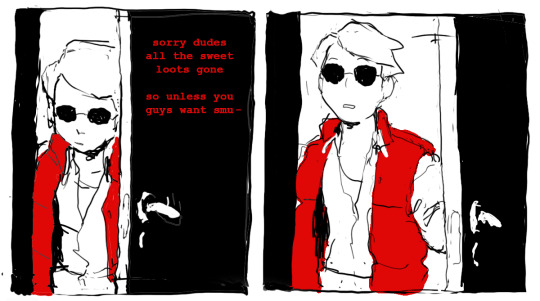

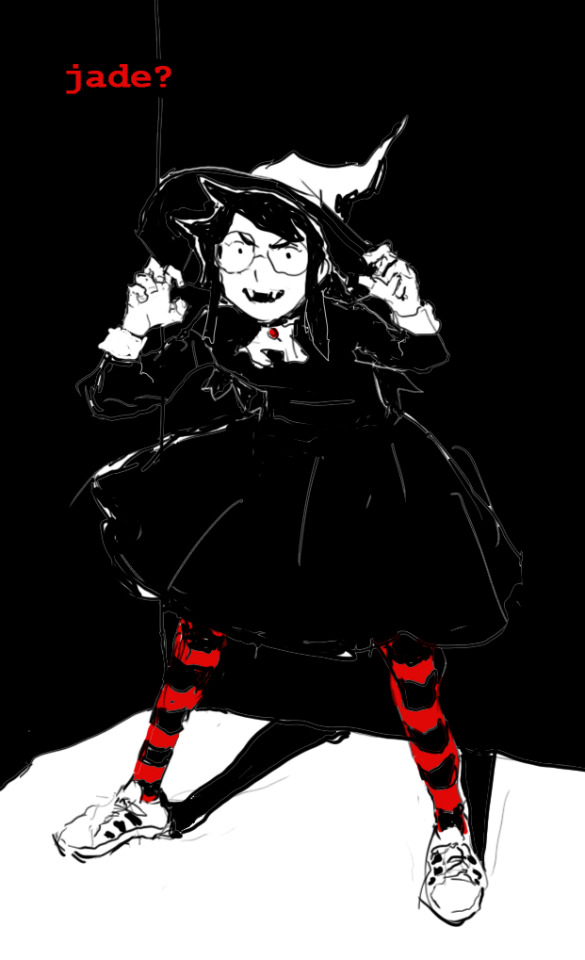


@mspaintjade
#dave strider#jade harley#homestuck#homestuck ask blog#davejade#kinda?#hom3stuck#striderween#mspaintjade#((go check their blog its so cute! also think this might be the last striderween post of the year!#thank you everyone who sent asks!!!!! there were So many cool n creative ones#really wish i had the time to do them all😭😭))
3K notes
·
View notes
Text
Writing rule:
Every character who speaks gets their own paragraph. If two characters are talking, each time they switch you must create a new paragraph.
Do not add more than one characters’s dialogue into a single paragraph or it will be too confusing for the reader.
#writing advice#writing tips#author advice#author tips#writing#writeblr#authors#books#writblr#author#aspiring writer#fiction writing#novel writing#creative writing#authors supporting authors#author blog#writing blog#stories#writerscorner#writing help#writing rules#wattpad author#ao3#wattpad#ao3 writer#wattpad writer#writer blog
5K notes
·
View notes